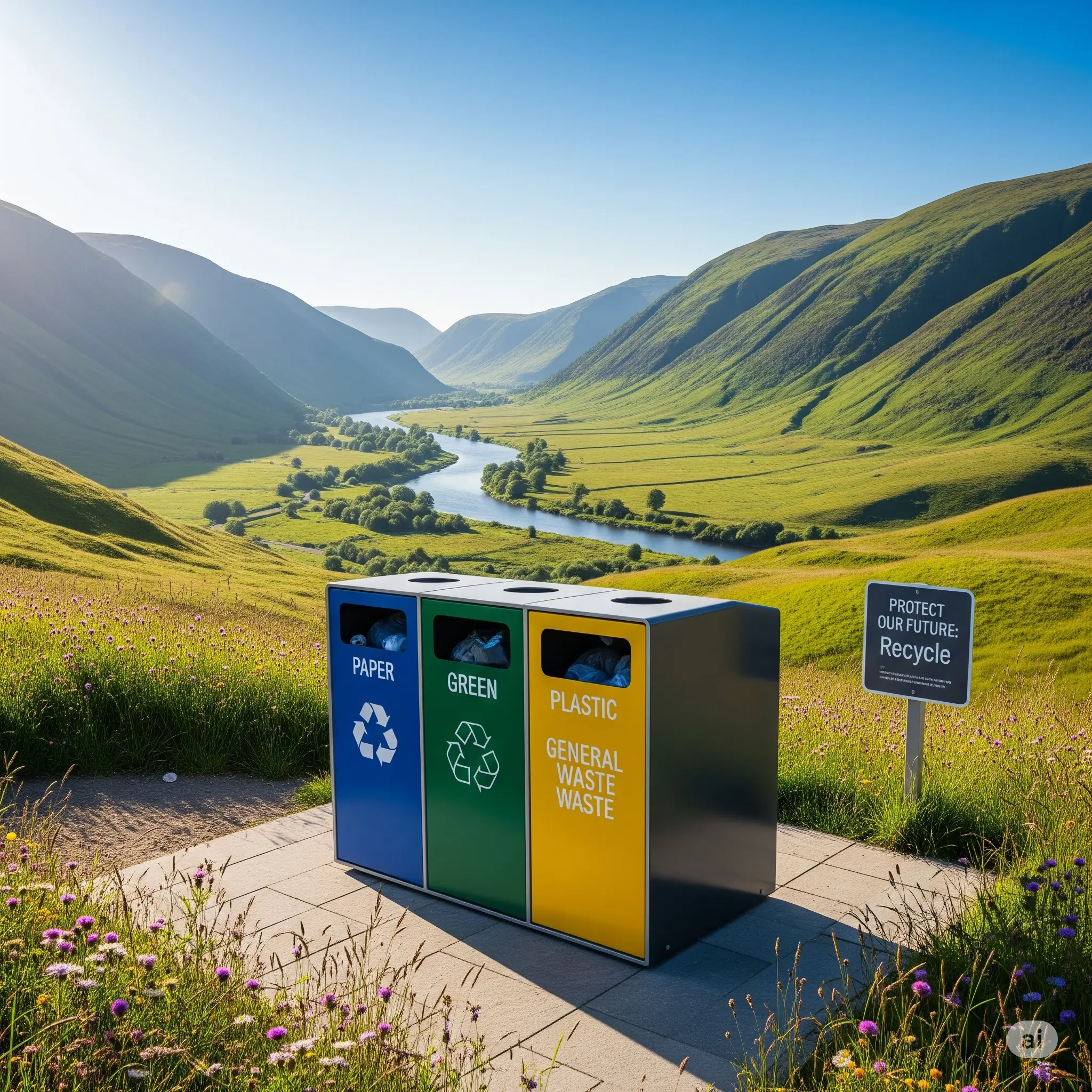As the global population expands, we produce an unprecedented amount of waste. Our world faces a critical waste problem, from industrial refuse to household garbage, that massively impacts our planet. Therefore, understanding the
environmental importance of waste management is more crucial than ever. This isn’t just about keeping communities clean. It’s about protecting our environment, safeguarding public health, and building a sustainable future. Effective waste management is an essential pillar in preventing severe consequences like climate change and negative health impacts. For industrial businesses in Malaysia, implementing proper waste solutions is a fundamental corporate responsibility, not just a matter of compliance.
[Image: A clean, green landscape with clearly marked recycling bins for different materials, symbolizing a healthy planet.] Image Alt Text: A pristine landscape showcasing the environmental importance of waste management with clearly marked recycling bins.
What is Waste Management?
We define waste management as the comprehensive process of collecting, transporting, treating, and disposing of waste materials responsibly and sustainably. The primary goal is to minimize the adverse effects of waste on human health, the environment, and natural resources. This involves practices that increase a product’s lifecycle. For instance, it encourages reusing and recovering materials to reduce the total waste sent to landfills.
Common waste disposal methods include:
- Landfilling: This is the most prevalent method, which involves burying waste in designated, engineered areas. Modern landfills use liners and gas recovery systems to reduce environmental impact.
- Recycling: This process converts waste materials like paper, plastics, and metals into reusable products. As a result, it reduces the demand for new raw materials.
- Composting: We can decompose organic waste, such as food scraps, into nutrient-rich compost. This practice reduces landfill waste and enriches soil.
- Specialized Disposal: Hazardous materials, industrial refuse, and electronics require special handling. This ensures safety and compliance with environmental regulations.
The High Cost of Improper Waste Disposal
Improper waste management leads to devastating consequences. For example, organic materials in landfills break down and release methane. Methane is a potent greenhouse gas and a major contributor to global warming. In fact, waste generation is the third-highest source of methane gas emissions of any sector. You can learn more about greenhouse gases from the
(https://www.epa.gov/ghgemissions/overview-greenhouse-gases).
Furthermore, inappropriate disposal, such as illegal dumping, contaminates land, water sources, and the air we breathe. When toxic substances from waste leak into the soil and water, they can pollute drinking water. This can harm or kill wildlife and disrupt entire ecosystems.
The Environmental Importance of Waste Management: Key Benefits
The advantages of a robust waste management strategy extend far beyond simple cleanliness. They offer profound environmental and economic benefits.
- Environmental Protection and Pollution Reduction: This is the most significant benefit. By diverting waste from landfills through recycling and composting, we decrease greenhouse gas emissions and air pollution. Proper disposal also prevents harmful substances from contaminating soil and water. Consequently, this protects human health and preserves delicate ecosystems.
- Resource Conservation: Waste management is a cornerstone of resource conservation. Recycling allows us to reclaim valuable materials from discarded items. This minimizes the need for raw material extraction and conserves natural resources like timber, water, and minerals. In addition, it reduces the environmental damage associated with mining and processing virgin materials.
- Public Health Improvement: Proper waste disposal is vital for public health. It prevents the spread of diseases by controlling pests like rats and mosquitoes that are attracted to waste piles. It also reduces the risk of contamination in our air, water, and soil.
- Enabling a Circular Economy: Effective waste management is a key enabler of a circular economy. This model aims to eliminate waste and optimize resource use. By transitioning from a linear “take-make-dispose” model to a circular one, we can achieve a more sustainable future. In this model, products are designed for longevity, reuse, and recyclability.
Your Role in a Sustainable Future
Waste management is no longer just about disposal; it is a critical component of global environmental strategy. For industrial businesses, adopting responsible waste management practices is essential for legal compliance. It also enhances brand reputation and contributes to a healthier society. A great place to start is by implementing the principles outlined in our(link-to-blog-post-2).
By partnering with experts in scheduled waste solutions, your business can ensure it is not only meeting regulatory requirements but also actively participating in the movement toward a more sustainable and environmentally conscious future.




